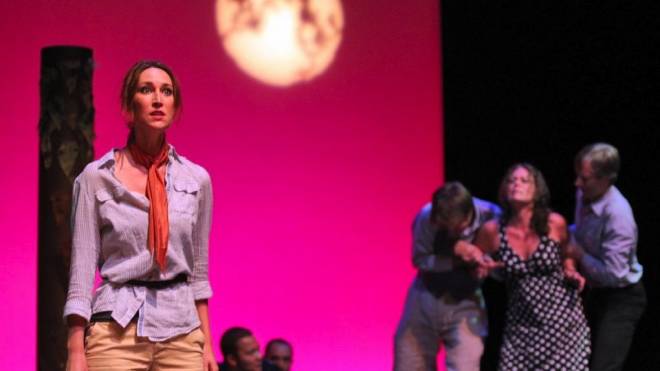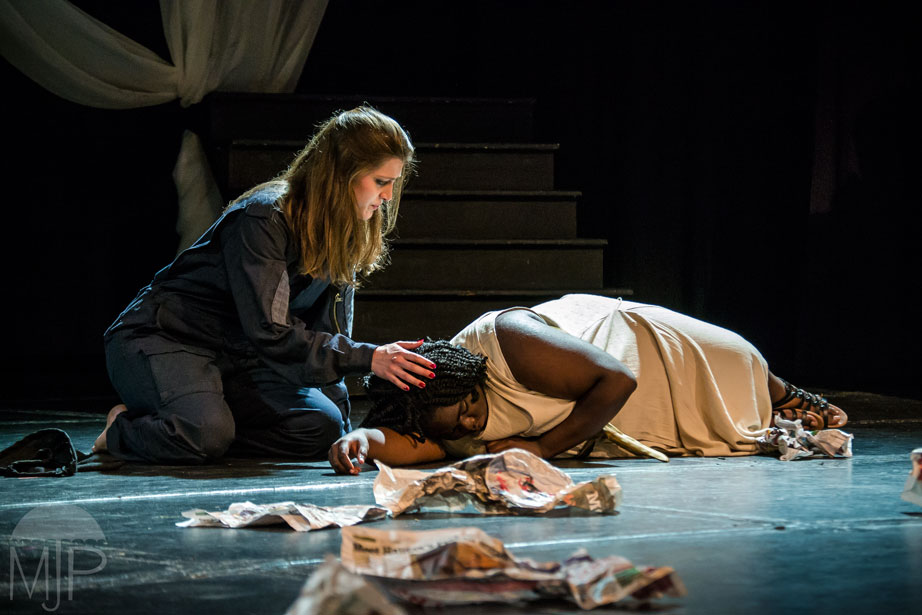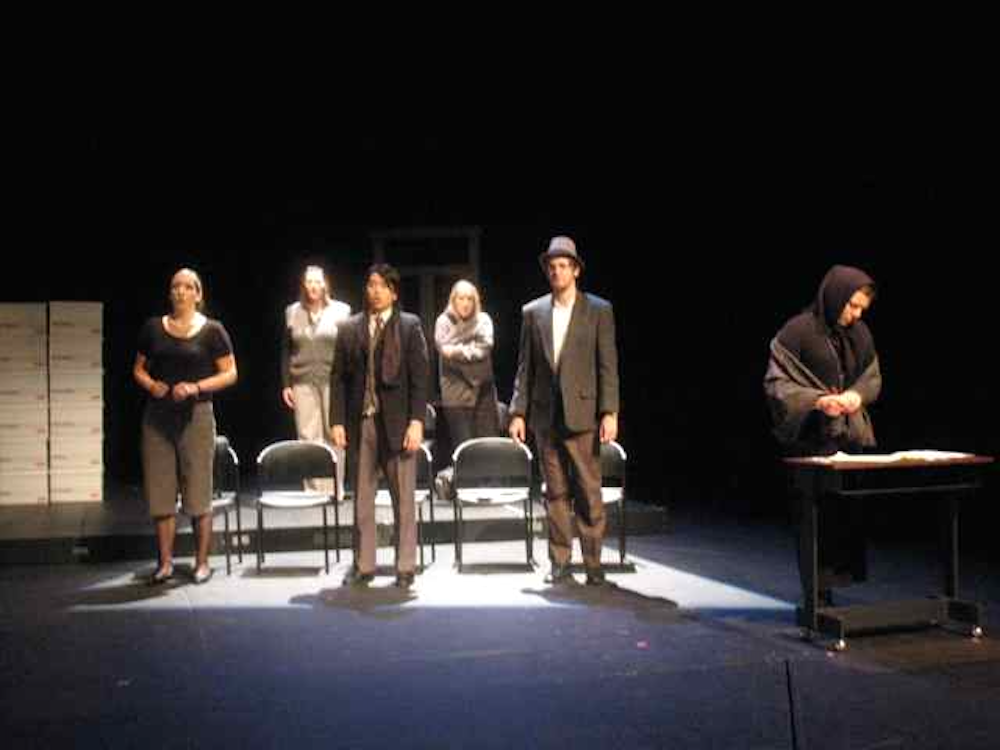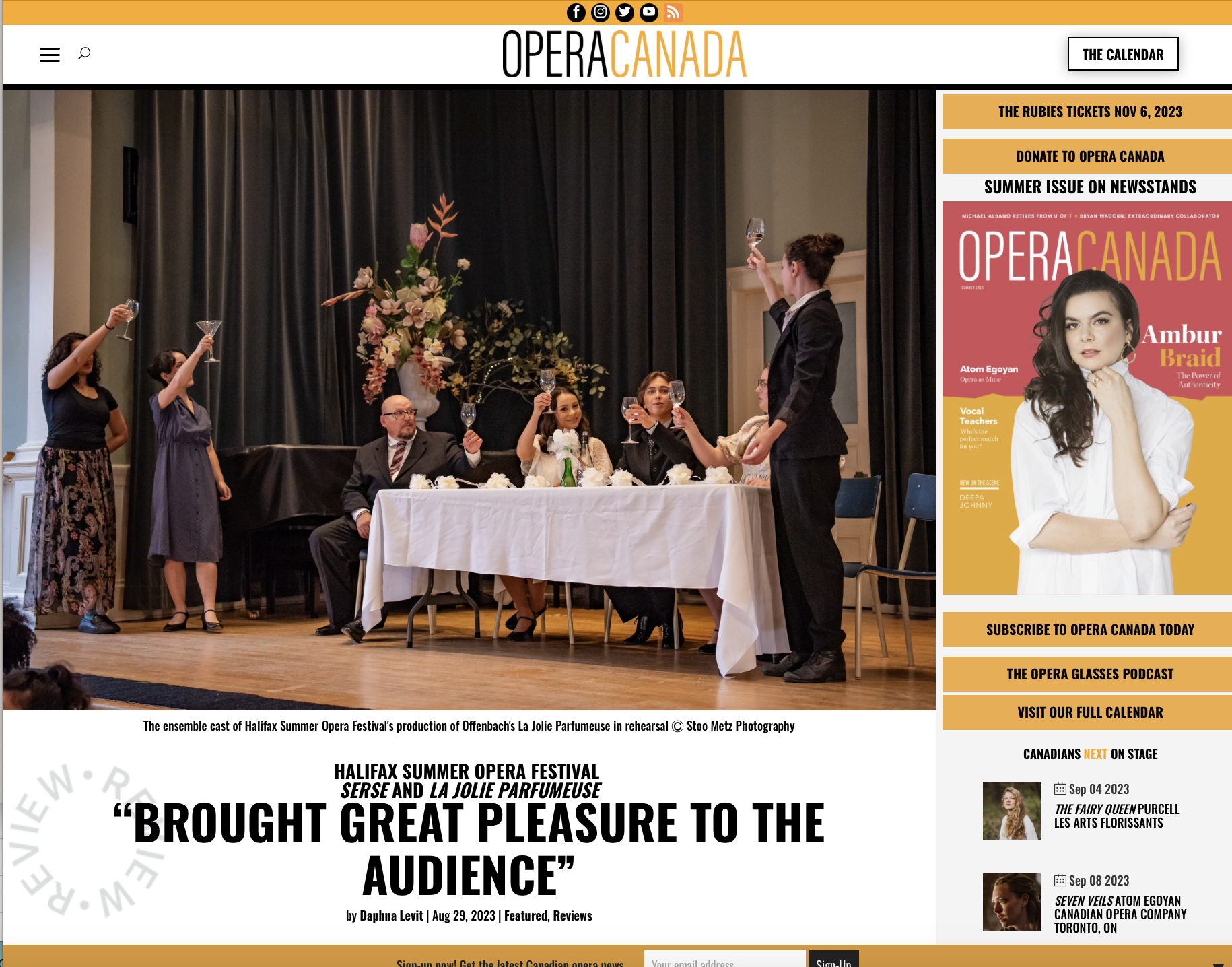
The operative word with the Halifax Summer Opera Workshop production of Midsummer Night’s Dream is magic.
I might be tempted to say “half-magic” but I don’t think magic is divisible.
The “half” is because a workshop production, even one as good as the one I saw in the Dunn Theatre Friday night, with piano accompaniment instead of orchestra, can’t and doesn’t aspire to present the full experience.
But what it does, with the help of a simple, uncluttered and extremely playable set, is hone your interest and drives you straight to iTunes, or wherever your recorded delights are kept, to get the full monty.
Pianist Greg Myra works the keyboard like an illusionist, spinning out of it webs of intricate musical figures in all registers, energizing the large cast of 19 to create four levels of beings, mischievously mingled in erotic fancies played out in a forest outside of Athens on a sweet midsummer’s night.
Dukes, courtiers, the mercurial Puck, the fairy kingdom of Oberon and Titania and the inimitable rustics all work the simple set with its six pillars. The off-centre platform enables the flow of the stage action.
The story is Shakespeare’s, condensed into two acts and the words his as well, which makes the side-titles projected on a screen useful and necessary.
But the diction of the cast is so good, you hardly need that aid, which is lucky because it can distract you.
There are two casts with two performances each between now and Sunday. Friday night’s cast will perform again on Thursday, while an alternate cast performed Saturday night and will again on Aug. 11.
All the voices were clear and well cast on opening night. But the most outstanding singer was Quebec soprano Frederique Drolet as Titania, with a fiery stage presence and a voice of pure crystal.
Counter-tenor Albert Montanez sang Oberon. He commanded the stage with a regal stride and could come on strong with an unpredictable scariness, though he seldom entered that counter-tenor nastiness that strips ions from metal. He certainly had it, but the part allowed him to let it out only once.
Steven Bourque as Puck, with a slim and diminutive athletic physique, was perhaps not as menacing as he could have been. He allowed Oberon to intimidate him.
Patrick MacDevitt and Nicole Stellino (Lysander and Hermia), Neil Reimer and Chelsea Mahan (Demetrius and Helena) played off each other well as they suffered the mood-changing fragrance of Puck’s love potion.
But, in this marvellous opera, Benjamin Britten gave full play to the rustics — Bottom, Quince, Flute, Snug, Snout and Starveling — as they rehearse and stage the farcical romantic tragedy of Pyramus and Thisbe.
Jeremy Hirsch, as Nick Bottom the weaver, takes charge of the whole show, bosses everyone around and suggests himself for all the roles before he is squelched.
Later on we know he’s heading for trouble and don’t feel a bit sorry.
Hirsch is really too young and too dapper for this comic character, but he overcame those limitations to impose his own stage authority.
During the performance, Flute (Max Zander) as Thisbe, who collapsed in stage fright during rehearsals, suddenly took fire in performance before the Duke of Theseus. He buzzed dangerously around the set in a long white gown with funnels for voluptuous breasts.
In the end, with a chorus of eight fairies including Cobweb, Mustardseed, Peasebottom and Moth, Britten wrote some of the most exquisitely delicate, fresh and sweet music to bring the opera to a close.







